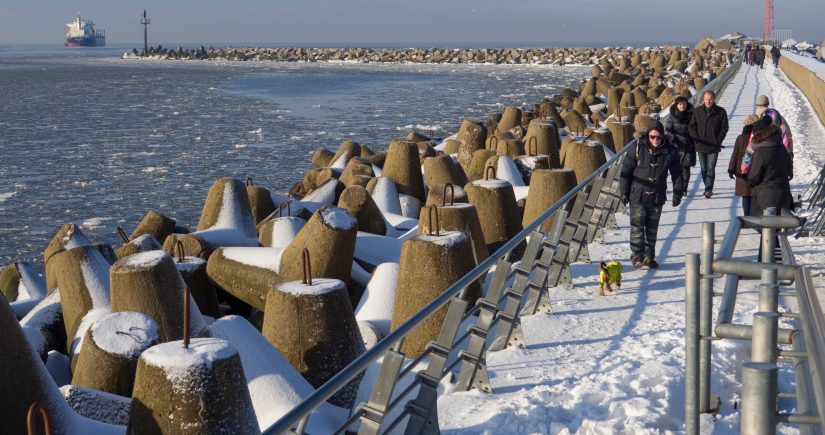CoST has released the third publication in its series exploring the need for infrastructure transparency in high-income countries and the added value of CoST in these contexts. Published in partnership with Transparency International Lithuania, our latest publication, Infrastructure Governance in Lithuania examines the extent to which Lithuania’s institutional innovations are embracing transparency, engaging citizens and promoting accountability. It concludes by assessing how adopting the CoST core features of disclosure, assurance, social accountability and multi-stakeholder working will add value to these efforts.
 The study focuses on public infrastructure delivery in Lithuania through the Government’s capital investment programme, known as the State Investment Programme (SIP). From 2006 to 2016 the average annual budget for infrastructure projects channelled through the SIP was €1.3 billion. The programme was set up in 1997 to secure funding for strategic infrastructure projects and, 20 years after its creation, a review of the extent to which it has accommodated innovative practices is timely.
The study focuses on public infrastructure delivery in Lithuania through the Government’s capital investment programme, known as the State Investment Programme (SIP). From 2006 to 2016 the average annual budget for infrastructure projects channelled through the SIP was €1.3 billion. The programme was set up in 1997 to secure funding for strategic infrastructure projects and, 20 years after its creation, a review of the extent to which it has accommodated innovative practices is timely.
Efficiency of investments
Lithuania has invested substantially in public infrastructure over the past few decades, aided by European Union (EU) structural funds, and scores well on indicators measuring the quality of infrastructure in comparison with other EU countries. However, we found that challenges remain in terms of ensuring the efficiency of investments, alongside concerns about mismanagement, waste and corruption. Moreover, infrastructure investment in Lithuania tends to rely on political cycles rather than long-term infrastructure planning. This places infrastructure projects at the risk of constant change, depending on political variations, and leads to projects being suspended and funds transferred to new investments.
Building on strengths
We found that Lithuania discloses significantly more data on infrastructure projects to the public than is legally required, equivalent to 65% of that recommended by the CoST Infrastructure Data Standard (CoST IDS). The Government should be commended for this and it is a strong starting point for adjusting the legal framework to ensure information is disclosed proactively, and reaches international standards of best-practise in infrastructure transparency. However, the data itself is scattered, disjointed and not easy to access. Making this type of information more easily available – for example through a unified, online, open data platform – will strengthen trust in the Government. It will also facilitate stronger accountability mechanisms to be applied in the use of public resources and ultimately more value for money.
Citizen engagement
There is a limited tradition of citizen engagement in Lithuania, and we found that public participation in the infrastructure project cycle is nascent but evolving. An increasing body of literature suggests that a lack of participation harms the quality of the decision-making processes, fuels opposition from groups affected by specific projects and increases project-related uncertainties and risks. As such, the Government needs to implement specific policy initiatives to increase levels of citizen engagement and identify proven approaches, tools and standards specifically tailored to infrastructure projects.
Enhancing transparency and participation
Openness and accountability are important policy objectives of the Organisation for Economic Co-operation and Development. They are included as goals in Lithuania’s State Advancement Strategy 2030 and the country has already joined the Open Government Partnership. Adopting and adapting the core features of CoST and proactively strengthening transparency, participation and accountability in infrastructure governance has the potential of adding value to existing efforts in these areas. It will reinforce the new approach to preparing and implementing the SIP, which the Government could use to position Lithuania as a leader in the region on infrastructure transparency.
Download the case study here.
Read the findings from our other case study on Scotland here.
